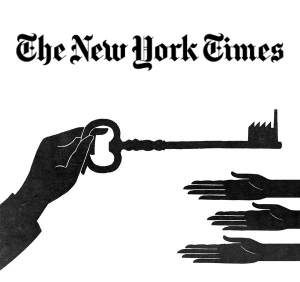Gar Alperovitz's Blog, page 9
October 28, 2013
Bioneers Radio (with Ted Howard)
 The good folks at Bioneers Radio recently put together this great short program featuring myself and my Democracy Collaborative colleague Ted Howard:
The good folks at Bioneers Radio recently put together this great short program featuring myself and my Democracy Collaborative colleague Ted Howard:
A Parade of Dwarves: Democratizing Wealth for a New Economy
GAR ALPEROVITZ and TED HOWARD
October 25, 2013
The Next America: The Emerging New Direction as the Old Order Decays
Video from my recent talk at the Schumacher Center for a New Economics:
October 18, 2013
How to Democratize the US Economy
 The following adapted excerpt of my book What Then Must We Do? appeared in the 10/28 edition of The Nation
The following adapted excerpt of my book What Then Must We Do? appeared in the 10/28 edition of The Nation
Everyone knows the United States faces enormous challenges: unemployment, poverty, global warming, environmental decay—to say nothing of whole cities that have essentially been thrown away. We know the economic system is dominated by powerful corporate institutions. And we know the political system is dominated by those same institutions. Elections occur and major fiscal debates ensue, but most of the problems are only marginally affected (and often in ways that increase the burdens).
The issue is not simply that our situation is worrisome. It is that the nation’s most pressing problems are built into the structure of the system. They are not unique to the current economic slump or the result of partisan bickering, something passing in the night that will go away when we elect forward-looking leaders and pressure them to move in a different direction.
Not only has the economy been stagnating for a long time, but for the average family, things have been bad for a very long time. Real wages for 80 percent of workers have not gone up more than a trivial amount for at least three decades. At the same time, income for the top 1 percent has jumped from roughly 10 percent of all income to more than 20 percent. A recent estimate is that a mere 400 individuals in the United States own more wealth than the bottom 180 million Americans taken together.
Unfortunately, what we call traditional politics no longer has much capacity to alter most of the negative trends. To be clear: I think projects, organizing, demonstrations and related efforts are important. But deep down, most people sense—rightly, in my view—that unless we develop a more powerful long-term strategy, those efforts aren’t going to make much of a dent.
October 1, 2013
Five years after the big bailout: Time to begin building a “new economy”
 Five years ago today, on October 3rd, 2008, the federal response to the financial crisis began with the signing into law by then President Bush of the Troubled Assets Relief Program (TARP). After a half-decade of emergency measures—including not only the bailout, but the temporary nationalization of major auto manufacturers and round after round of “quantitative easing”—have we managed to put the economy back on a secure footing?
Five years ago today, on October 3rd, 2008, the federal response to the financial crisis began with the signing into law by then President Bush of the Troubled Assets Relief Program (TARP). After a half-decade of emergency measures—including not only the bailout, but the temporary nationalization of major auto manufacturers and round after round of “quantitative easing”—have we managed to put the economy back on a secure footing?
Unfortunately, the clear answer is that we have not.
To the consternation of both the public and the economists, this “recovery”—and the two which preceded it—have been “jobless recoveries.” While the government measure of the unemployment rate has declined to a modest extent, the absolute percentage of the population employed has remained more or less constant since 2009, as people resign themselves to joblessness and leave the labor force. Furthermore, even this anemic and halting climb back towards increased employment has been vastly uneven: a massive gap exists between the unemployment rate of lower income families (21%) and the rate for higher income families (3.2%). 15% of Americans—nearly 1 in 6—are seemingly consigned to live in poverty. Meanwhile, the banks that were “too big to fail” in 2009 are, despite scandal after scandal, bigger than ever. And while wages stagnate, corporate profits and the income of the 1% is soaring.
The title of my recent book, taken from Tolstoy, is straightforward: What then must we do? For some, the answer is simply that we need to remove or neutralize the conservative forces holding back a sensible Keynesian economic policy; a little more stimulus, a little more public spending, a few reforms around minimum wages and everything will be back on track. Yes, this would be better than nothing. But when we look soberly at the long-term trends, it is clear that we face a systemic crisis: a deep failure of the institutional basis of the traditional strategy for holding corporate capitalism in check. Poverty rates, income inequality trends, global warming, incarceration rates—these and many other three and four decade trends began long before the recent House Republican difficulties—and they are all but certain to continue on their current course long beyond the political problems of the moment.
In short, what we need is not just simply more pressure for reform around the edges of the system, but a movement to build a new economy, a movement that will build steadily over time as the civil rights, feminist, environmentalist and, indeed, conservative movements built up long term strength, step by step, until major political power was achieved.
Thankfully, a “New Economy” movement is beginning to emerge all around us, and part of helping it grow is making it more visible. A recent debate on new banking institutions appeared yesterday in the New York Times. Annie Leonard’s just released new video The Story of Solutions is a powerful followup to her Story of Stuff that highlights transformative work in the new economy. Worker-owned co-ops are developing in many areas. Even the august Academy of Management—an organization of leading business school professionals—opened a serious debate on the future of capitalism at their annual meeting this past summer.
And importantly the New Economy Coalition is organizing a week of events this month to highlight the activity bubbling up at the grassroots across the country. A pilot for what they hope to become an annual event, “New Economy Week” will bring together communities across the country in local celebrations, screenings, and lectures. (I will be speaking in Amherst and Great Barrington, Massachusetts on October 10th and 11th, and answering questions online for a national audience via the website Reddit on October 15th.)
Building effective movements for change rarely, if ever, happens overnight: The New Economy Week is a small but necessary step towards the one we need right now.
September 23, 2013
What Then Can I Do? Ten Ways to Democratize the Economy
And find out how to host a community screening of my new film, The Next American Revolution or organize a reading group around What Then Must We Do? here.
The richest 400 Americans now own more wealth than the bottom 180 million taken together. The political system is in deadlock. Social and economic pain continue to grow. Environmental devastation and global warming present growing challenges. Is there any path toward a more democratic, equal and ecologically sustainable society? What can one person do?
In fact, there is a great deal one person working with others can do. Experiments across the country already focus on concrete actions that point toward a larger vision of long-term systemic change – especially the development of alternative economic institutions. Practical problem-solving activities on Main Streets across the country have begun to lay down the elements and principles of what might one day become the direction of a new system – one centered around building egalitarian wealth, nurturing democracy and community life, avoiding climate catastrophe and fostering liberty through greater economic security and free time.
Margaret Mead famously observed: “Never doubt that a small group of thoughtful, committed citizens can change the world; indeed, it’s the only thing that ever has.” Some of the ten steps described below may be too big for one person to take on in isolation, but many are exactly the right size for a small and thoughtful group committed to building a new economy, restoring democracy and displacing corporate power.
As the history of the civil rights movement, women’s movement, and gay-liberation movement ought to remind us, it’s precisely actions of this sort at the local level that have triggered the seismic shifts of progressive change in American history…. Read more »
August 6, 2013
Podcast: Left Forum 2013
In June at Pace University in New York City, I participated in a number of panels, two of which are available as podcasts.
The first panel was an exchange with my friend and colleague, Marxian economist Richard Wolff, regarding workplace democracy and democratic ownership.
Introduction – Maliha Safri
7:00 – Opening statements by Richard Wolff
36:00 – Statement by Gar Alperovitz
1:03:00 Questions
1:09:00 Richard Wolff responds
1:18:00 Gar Alperovitz responds
*
In the second panel, “Is There an Ecologically Sustainable Alternative? Democracy, Planning and Markets in the Next System,” I had a lively discussion with researcher Richard Smith of Institute for Policy Research and Development.
Introduction
2:15 Richard Smith
32:00 Gar Alperovitz
56:00 Q&A
July 25, 2013
Strange days: “Capitalism in Question” at the Academy of Management
 It’s hard to judge the true depth of crisis developing in the foundations of our political and economic system when you are living, day in and day out, in the middle of it. But it is clear that something deep is fundamentally broken with capitalism, and that fixing it requires thinking seriously about what might emerge as what can probably only be called “a next system.”
It’s hard to judge the true depth of crisis developing in the foundations of our political and economic system when you are living, day in and day out, in the middle of it. But it is clear that something deep is fundamentally broken with capitalism, and that fixing it requires thinking seriously about what might emerge as what can probably only be called “a next system.”
This is not a radical judgment. Perhaps surprisingly, you can find this perspective resonating within the most powerful citadels of the system itself. Klaus Schwab, the founder of the World Economic Forum, for instance, introduced a recent Davos meeting of the global financial and political elite with these words: “Capitalism, in its current form, no longer fits the world around us [...] We have failed to learn the lessons from the financial crisis of 2009 [...] A global transformation is urgently needed and it must start with reinstating a global sense of social responsibility.”
Even more encouraging than Schwab’s informal comment is the consideration serious business and financial experts are giving to questions about the future of capitalism and the long term possibility of a successor system. I have found receptive audiences for my work on this subject (and my book What Then Must We Do?) at major conferences dedicated to socially responsible investing like SOCAP and SVN. I have also found that many people who have spent the last decades pioneering innovative projects that put their business acumen to use in the service of economic and social justice are beginning to realize that the system itself may be broken. And that, if so, we need to begin to think about alternatives that might be developed, even if over the long haul.
I admit that I was a bit taken aback, however, when I was asked to deliver a keynote address on August 11th at the annual Academy of Management meeting whose theme this year is, quite simply: “Capitalism in Question.” To hear this august body, with over 17,000 members at the heart of the business management profession raise such questions as the following is stunning:
The recent economic and financial crises, austerity, and unemployment, and the emergence of many economic, social, and environmental protest movements around the world have put back on the agenda some big questions about this vision: What kind of economic system would this better world be built on? Would it be a capitalist one? If so, what kind of capitalism? If not, what are the alternatives?
What’s even more interesting is the degree of sophistication with which they are doing so. Indeed, compared to the grandiose but vague calls for a post capitalist society one often hears on the Left these days, the call for submissions for the Academy of Management’s conference is a breath of fresh air. Do yourself a favor and read it over: It outlines the kind of sophisticated research agenda we’ll need if we’re serious about building something over time beyond the traditional systemic capitalist model.
At the local level we often find retired businessmen and businesswomen helping local social enterprises, B-corporations, co-ops, land trusts, municipal efforts and other potential institutional elements of a new direction. But it’s especially encouraging to see this coming from professionals at the heart of the system itself. Given the explosion of interest and hunger at the grassroots level across the country for real alternatives, we’re going to need as many people as possible who not only have a commitment to working to build a new future, but who possess the knowledge and expertise to make it viable—like those meeting at the Academy of Management Conference in Orlando this August.
July 24, 2013
Alternatives to Capitalism: The Next System Project
The current issue of The Good Society, the long-running journal of the Committee on the Political Economy of the Good Society (PEGS), is devoted in its entirety to “Alternatives to Capitalism,” a symposium built around my essay (with Steve Dubb) on “The Possibility of a Pluralist Commonwealth and a Community-Sustaining Economy”.
The essay also serves as an important foundational document for a new Democracy Collaborative venture, The Next System Project, a multi-year initiative aimed at developing the carefully researched and comprehensive proposals required to deal with the systemic challenges—environmental, economic, social and political—the United States faces. It hopes thereby to help stimulate a broad national dialogue on longer term political economic directions.
The Next System Project will bring together leading thinkers, activists and practitioners and will use up-to-date research and understanding to place ‘the system question’ on the map. It will explore issues of political-economic system design with a view to generating alternative models—different from both corporate capitalism and state socialism—capable of delivering superior ecological, social and economic outcomes. The Project will stress such fundamental guiding values as participatory democracy, equality, liberty, ecological sustainability and community.
The overall effort will not seek to provide all the answers. Instead, it will focus on the development—through fellowships, research and strategic convening—of multiple system-wide proposals and as well as institutional and policy elements that can help catalyze a wide-ranging debate about the need for a radically different political-economic system. The goal is the careful articulation of a systemic vision beyond traditional corporate capitalism, and how we might move toward its construction over time.
More information on The Next System Project will be provided in due course. For now, the symposium is available free from JSTOR for a limited period—until the end of August 2013. I hope you enjoy the various contributions by Democracy Collaborative staff and others. In addition to the lead essay, there are articles on generative ownership design by Marjorie Kelly, state and local policies by Joel Rogers, constitutional protections by Thad Williamson, the crisis of European social democracy by Joe Guinan, and public ownership by Thomas Hanna.
Read and download the whole issue for free through the end of August
July 10, 2013
Symposium on “Alternatives to Capitalism” in the new issue of “The Good Society”
 The latest issue of The Good Society is composed of a lead essay by myself and Democracy Collaborative research director Steve Dubb on the prospects for a “a community-sustaining economy”, followed by a number of pieces that explore different facets of the project of developing “alternatives to capitalism,” with articles by:
The latest issue of The Good Society is composed of a lead essay by myself and Democracy Collaborative research director Steve Dubb on the prospects for a “a community-sustaining economy”, followed by a number of pieces that explore different facets of the project of developing “alternatives to capitalism,” with articles by:
Thomas Hanna on public ownership of “too big to fail” corporations
Joe Guinan on austerity and the crisis of European social democracy
Marjorie Kelly on the shift to “generative ownership” of corporate enterprise
Thad Williamson on “property-owning democracy” and constitutional guarantees
and Joel Rogers on state and local policies for democratizing wealth
Notably, the journal is experimenting with open access; the entire issue is consequently free online via JSTOR until the end of August.
July 8, 2013
The Legacy of the Boomer Boss
 This op-ed originally appeared in the July 6th edition of The New York Times
This op-ed originally appeared in the July 6th edition of The New York Times
Over the next decade millions of business owners born during the baby boom will retire. Many, with no obvious succession strategy, will simply sell their companies, the backbone of Main Street economies across the country, to large corporations. All too often the result will be consolidations, plant closures and lost jobs for the people who helped build and sustain their companies for decades.
The boomers should think again: selling to their employees is often a far better way to go — for both moral and economic reasons.
Take New Belgium Brewing, based in Fort Collins, Colo., which its chief executive and co-founder, Kim Jordan, sold late last year to its 400-plus employees through what’s called an employee stock ownership plan. “There are few times in life where you get to make choices that will have multigenerational impact,” she said. “This is one of those times.”
An ESOP works like this: a company sets up a trust on behalf of the employees, into which it directs a portion of its profits. The trust uses that money to buy the owners’ shares, either all at once or over time. To ease the burden of such a large purchase, the employees, through the trust, can buy the company by borrowing against future earnings, with zero upfront costs.
For many owners, the decision isn’t just about securing a legacy. It is a relatively easy one to make on financial grounds, too. If the owner sells more than 30 percent of the company to the employees, all capital gains taxes are deferred, provided that the proceeds are invested in American companies.
This is hardly a new idea: more than 10,000 firms with ESOP’s now operate successfully, in virtually every sector. Indeed, three million more individuals are now worker-owners of their own businesses than are members of unions in the private sector. They include well-known companies like W. L. Gore & Associates, the maker of Gore-Tex, and the school-picture company Life-Touch, as well as countless smaller companies, some even organized as traditional co-ops.
Most employee-ownership plans are not the result of boomer-age retirements, at least not yet. But that could change soon. Martin Staubus, a consultant for the Rady School of Management, at the University of California, San Diego, estimates that every year 150,000 to 300,000 businesses owned at least in part by boomers become candidates for employee takeovers as their owners hit retirement age. That means that over the next 15 years retiring boomers could help create two to four million new worker-owned businesses nationwide.
Worker ownership is not without difficulties, whether it is the result of an owner’s retiring or some other event. The selling price and continuing value of the firm, for instance, depend on an independent fair-market valuation of the company. This can fluctuate depending on the state of the economy, potentially playing havoc with employee wealth.
Tax benefits provided to help transfer ownership have also sometimes been misused. And ESOP’s involving large companies can be mind-bogglingly complex. But for smaller, privately owned companies, the challenges are typically well known and easily overcome.
And while there is in theory some tension about the idea of worker-owners and worker representation through unions, many labor organizations are by now well versed in negotiating potential conflicts — indeed, the United Steelworkers recently decided to actively promote unionized co-op worker-ownership efforts.
Meanwhile, companies in which employees have a direct ownership stake commonly report higher productivity, profits and pension and other benefits than comparable private firms in the same sector — especially when attention is paid to training workers in self-management.
The truly interesting challenge, however, is to retiring boomers. Selling to employees is harder than selling to an established corporation or private equity company. Not everyone will feel the excitement of a Kim Jordan, whose decision to sell to New Belgium’s workers was greeted with cheers from employees. “We bought it,” they boasted in a news release. “The whole shebang.”
Still, choosing to create a more lasting legacy than letting some large corporation take over one’s life work has a certain quiet appeal — especially when it is rewarded with tax benefits.
Gar Alperovitz, a professor of political economy at the University of Maryland and a founder of the Democracy Collaborative, is the author of “What Then Must We Do?: Straight Talk about the Next American Revolution.”
A version of this op-ed appeared in print on July 6, 2013, on page A17 of the New York edition with the headline: The Legacy Of the Boomer Boss.




